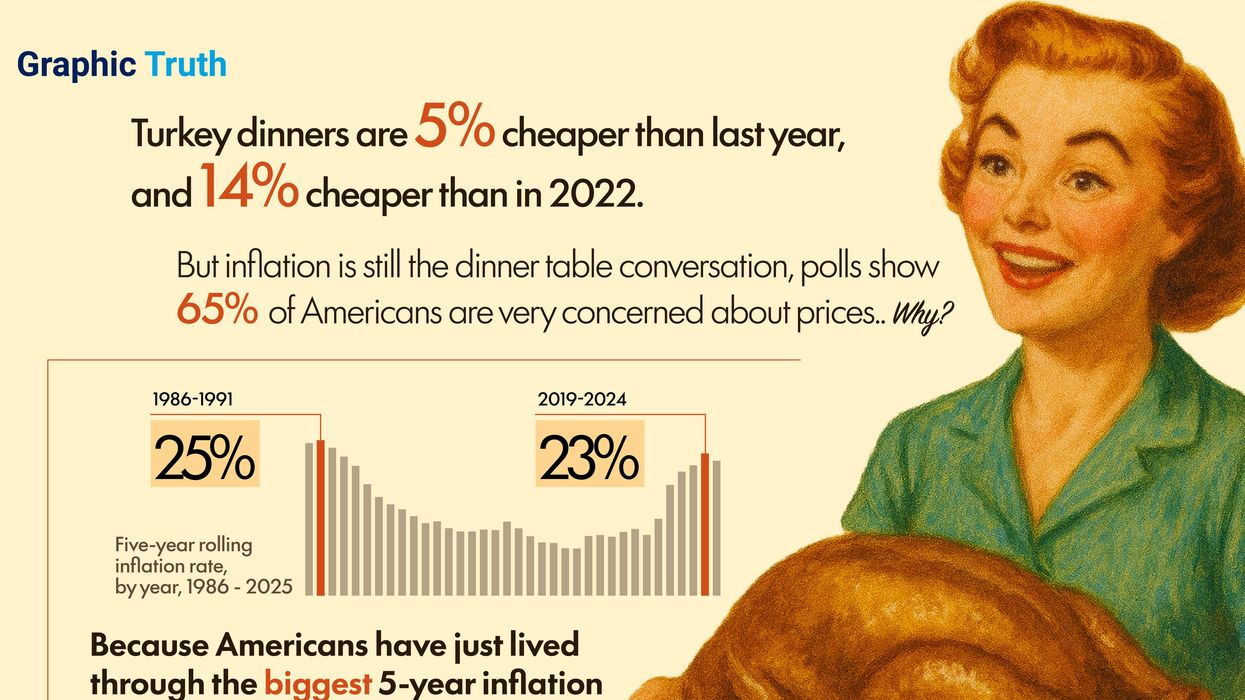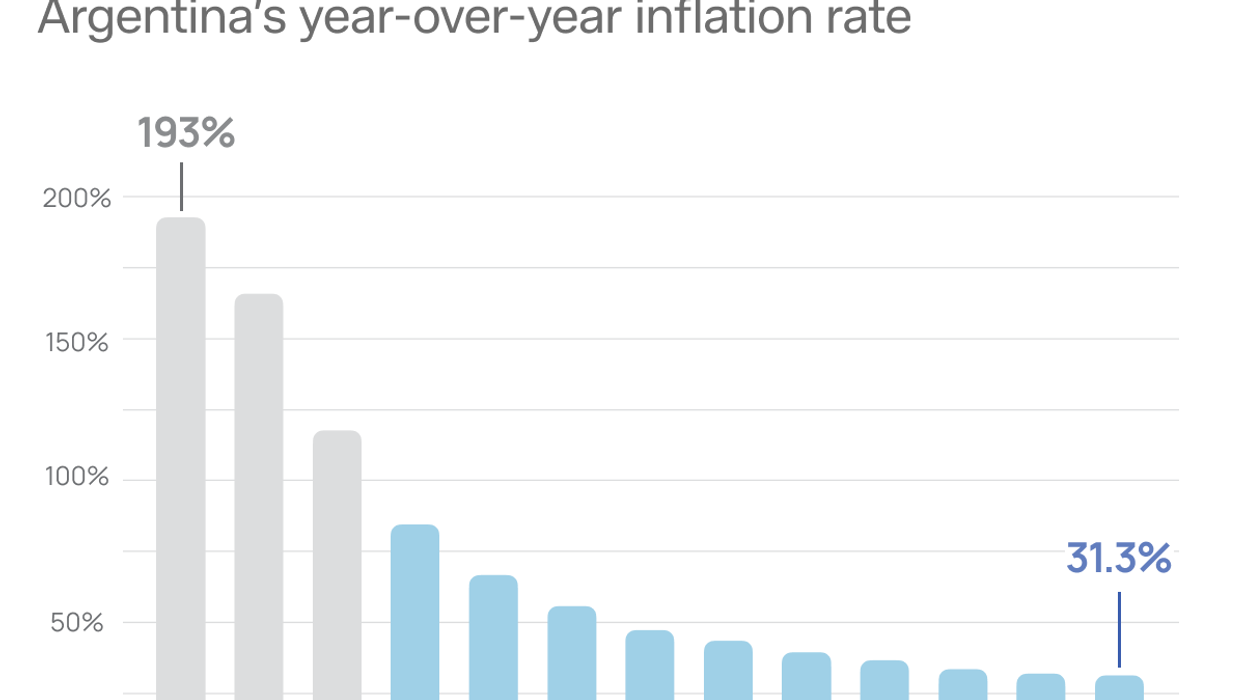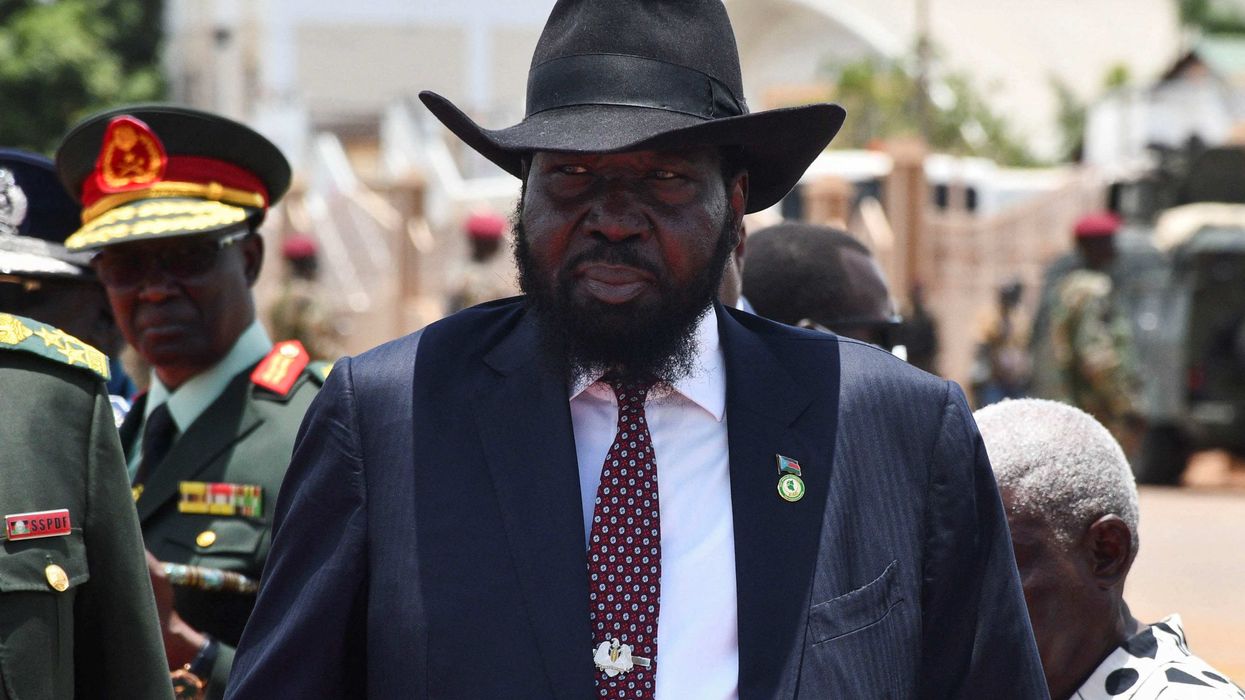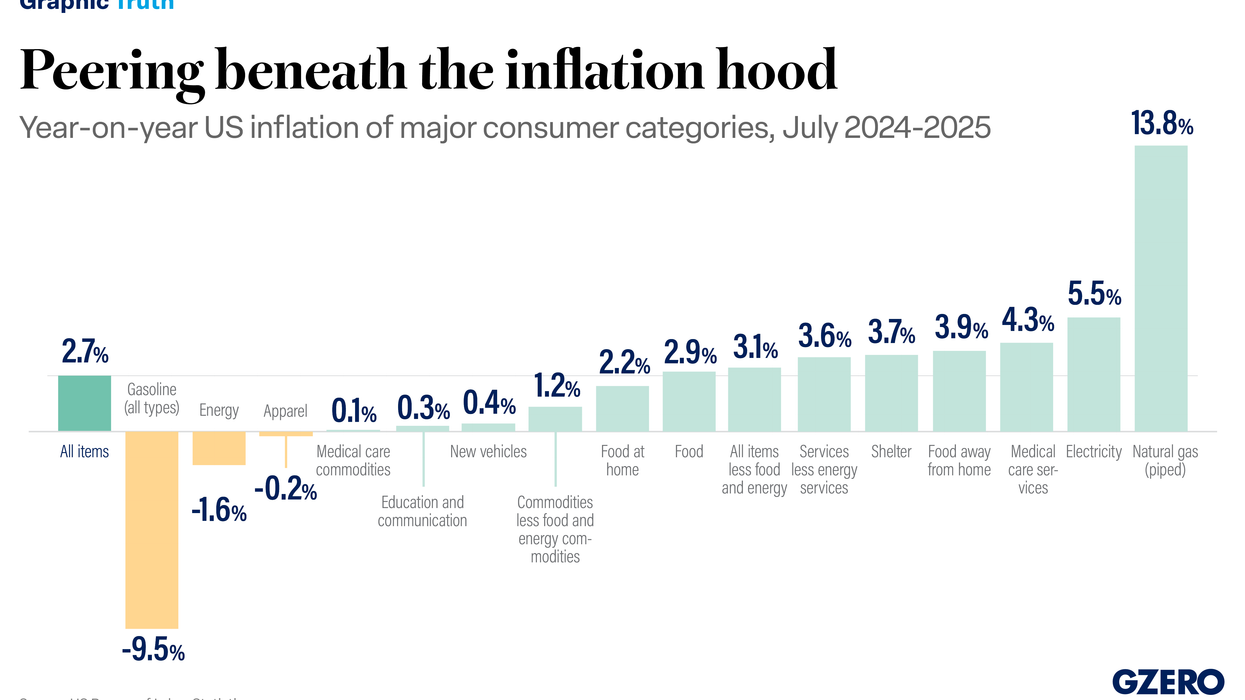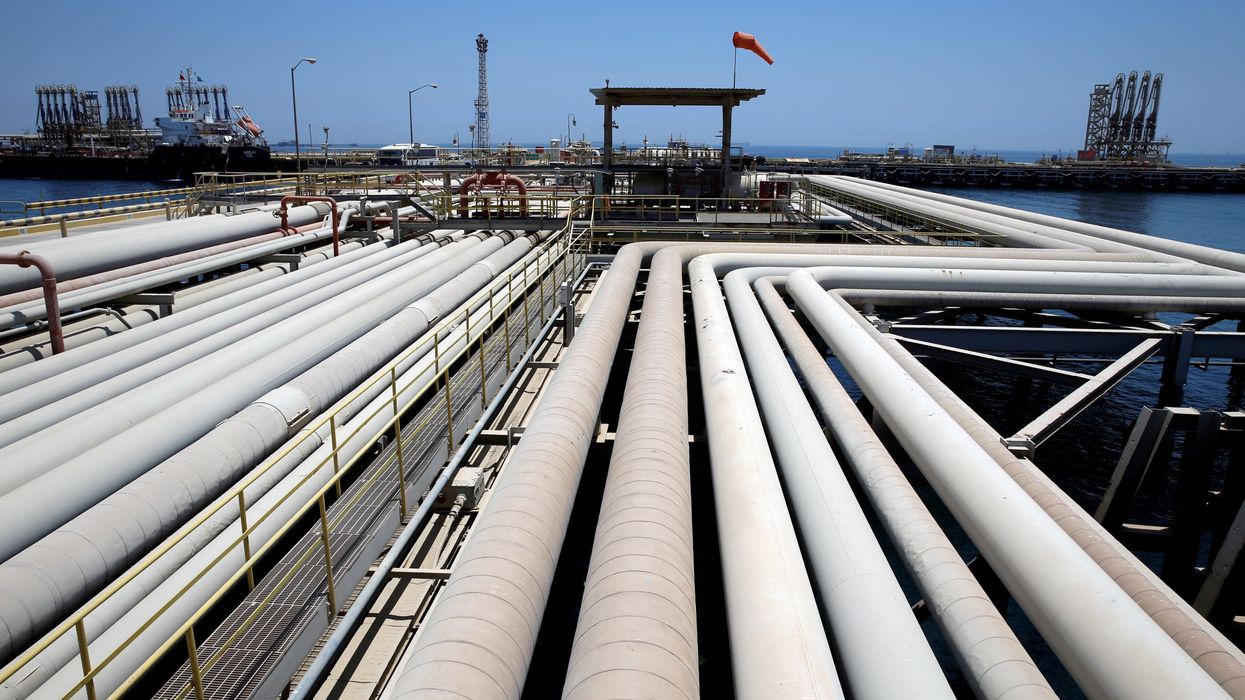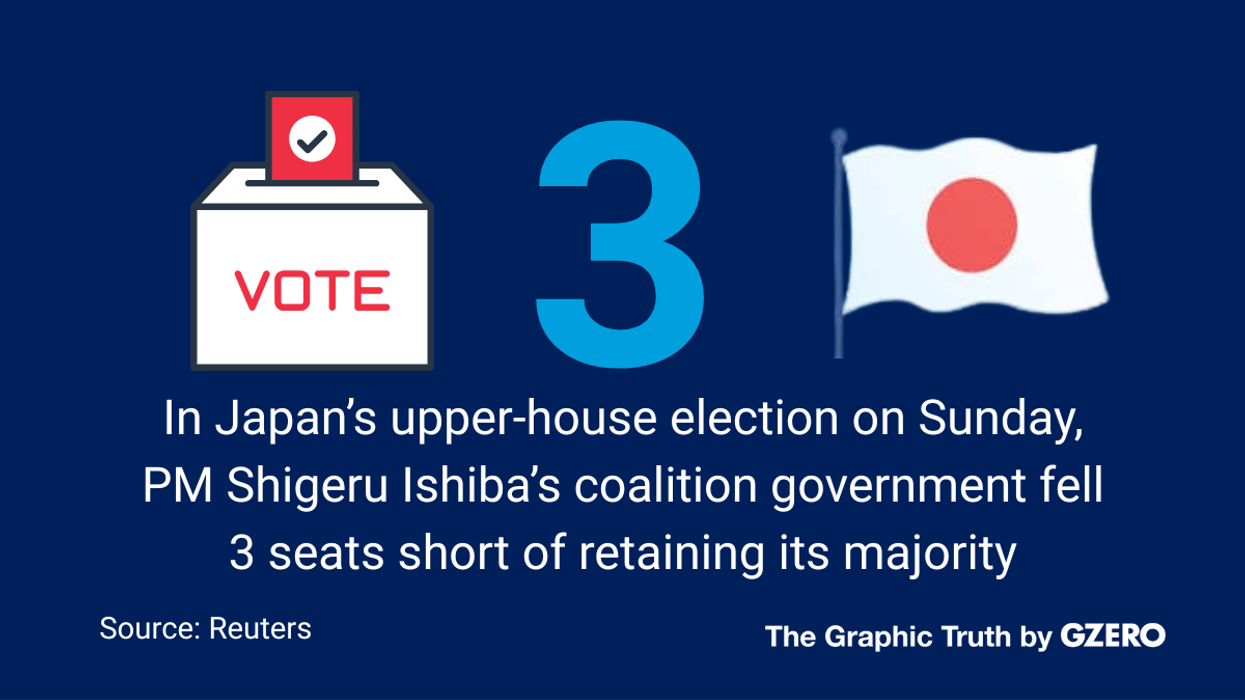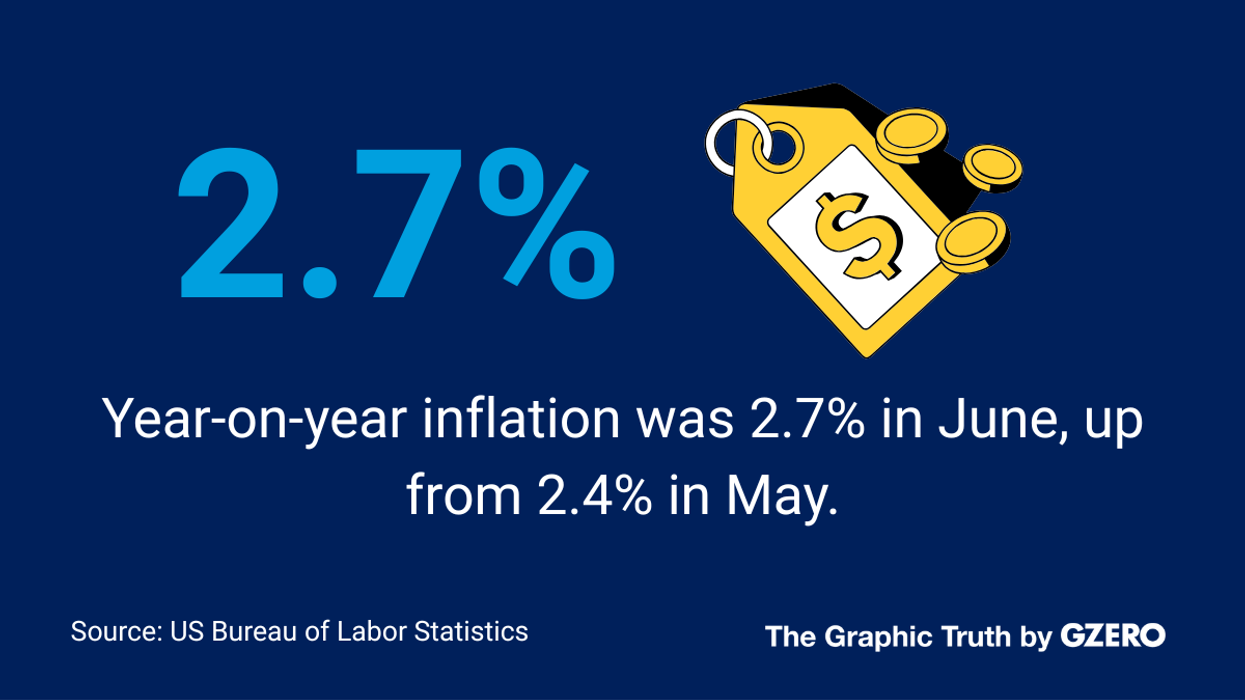Graphic Truth
Graphic Truth: Turkey is cheaper, but inflation still gobbles
One thing to be grateful for this US Thanksgiving is that a turkey dinner for 10 people has gotten cheaper for the third year in a row. But nearly 65% of Americans are still upset about rising prices, according to a recent Pew Research Poll. How to reconcile those two things?
Nov 26, 2025
